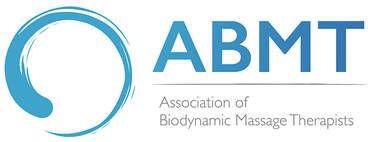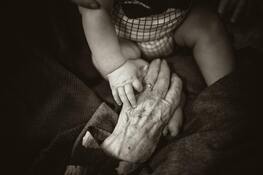SATURDAY 9TH JULY 2022 9.30am-5.00pm. KINGS COLLEGE, CAMBRIDGE UNIVERSITY.Speaking and touching are two streams of communication which seamlessly interweave in daily relationships. Touch is a "language" in its own right and it can sometimes communicate more than words can say. The foundations for this are laid down prior to birth and afterwards. Communicating through touch is a way of relating in body psychotherapy. Body psychotherapists are trained to touch, have a touch lexicon, are skilled in its timely therapeutic use, and know how to observe and discuss the impact of touching with clients. Ways of touching are diverse and complex. Varying speed, rhythm, pressure and depth, focussing on different tissues of the body, touching skin to skin, through clothes and blankets, touching with finger tips, the palms of the hands, elbow to elbow are some of the possibilities. Through experience the skills and methods of touching become embedded in the psychotherapist and are pulled out of the practitioner, often intuitively, in a "dance" between client and therapist at appropriate moments. Unfortunately, other forms of psychotherapy have neglected therapeutic touching, usually have no training in it, and are often ambivalent about it. Discussions between psychotherapists of other modalities have tended to be somewhat limited and general, rather than exploratory and detailed. Until fairly recently neuroscience has also neglected research on touch, and concentrated on the other senses. However, there is now a burgeoning interest with papers being written on Affective Touch, mirror touch, vicarious tactile experience and so on. The importance of touch in infancy is also generating papers. In society generally the international Touch Test (2020) https://www.bbc.co.uk/mediacentre/latestnews/2020/the-touch-test-results has awakened touch as a topic for discussion and the social distancing of the Covid-19 pandemic has highlighted what it is like not to be able to touch others. We hope in this one-day conference to bring together body psychotherapists, psychotherapists from other modalities and neuroscientists to exchange ideas and dialogue with each other. Much remains unknown about touching therapeutically. What, for example, is happening from a neuroscientific perspective, when we touch in a particular way. Why is one form of touch more effective for some sorts of clients than others, why might touch be the first form of help for a particular client? SPEAKERS Professor Francis McGlone Losing Touch with Touch: It Will Cost Us Dearly Dr Natalie Bowling, Individual variability in touch attitudes and experiences. Dr Katarina Fotopoulou, The Neuroscience of Affective Touch: From the Lab to the Couch Tom Warnecke, Stirring the depths - reflections on touch in psychotherapy Gill Westland, Sue Frazer, Touch in Body Psychotherapy Dr Elya Steinberg, Dr David Tune, Courtenay Young Panel Presentation WHO IS THE DAY FOR? The day is intended for neuroscientists, psychotherapists, counsellors, and students of these disciplines. COST AND BOOKING £120.00 including beverages, and fork buffet in the Great Hall at King's College Please pay the full fee by Bank Transfer to: The Co-operative Bank Community Directplus Account Account title: CAMBRIDGE BODY PSYCHOTHERAPY CENTRE Sort Code: 089299 Account Number: 65264959 International Bank Account Number: GB89 CPBK 0892 9965 2649 59 Please use your name and CONF as the reference and let us know that you have booked. Please email: gillwestland@cbpc.org.uk We will confirm your place and send further details, when your payment has been received TRAVEL Kings College is in the centre of Cambridge. There is no onsite parking. There is also limited parking in the centre of Cambridge and it is expensive. Cambridge is easily accessible by train. From London, trains go regularly from Kings Cross and Liverpool Street. The postcode for King's College is CB2 1ST Written by: Gill Westland
0 Comments
Leave a Reply. |
ABMT Blog
A safe place to educate, train and collaborate. Building our network and community. Blog Archives
April 2024
Categories
|


 RSS Feed
RSS Feed